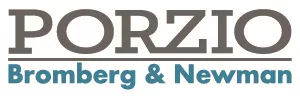That the arbitration agreement is ubiquitous in modern life is not new. Employers recognize the value of arbitration, and the topic has been explored and written about for years, including in Porzio's Employment Law Monthly. However, an arbitration agreement is only valuable if it can be enforced. The Third Circuit recently has considered the validity and enforceability of an arbitration agreement in the context of an agreement presented to an employee through a training course. In reviewing the court's opinion, it is important to understand how to ensure your arbitration agreement is enforceable in the first instance without the need for any discovery. This saves money, time, and effort; many of the same reasons an employer would want to arbitrate in the first place.
In Cornelius v. CVS Pharmacy et al., 2025 WL 980309 (3d Cir. Apr. 2, 2025), the Third Circuit revisited the enforceability of arbitration agreements, rejecting the finding of the lower court and remanding for further consideration on the issue of enforceability. Cornelius started at CVS in 1982 as a cashier. She worked at CVS for over 40 years, eventually being promoted to store manager in 2017. Cornelius raised concerns about her treatment at CVS in April 2019, but her complaints were dismissed. She submitted "many complaints" about the conduct of her supervisor, with at least six in writing from September 2019 to June 2020. Cornelius eventually was fired in November 2021.
Concurrently, CVS launched its arbitration policy in 2014 via a PowerPoint training course. Employees who participated in the training were led to a link to a "Policy Guide." The Policy Guide provided the full arbitration policy and enumerated how employees could accept or opt out of the policy. After reviewing the Policy Guide, the remaining slides included acknowledgments that the employee had "carefully read" the policy and that the employee understood it applies to them. In order to opt out, an employee would need to send a written and signed letter to a specific address. The District Court found that this arrangement, with the Policy Guide nested within the larger training, was enforceable.
In appealing to the Third Circuit, Cornelius argued that the agreement should not be enforceable. She argued that the language as presented to her -- spread across the Arbitration Guide, Training Course, and Arbitration Policy -- precluded any "clear and unmistakable" agreement to arbitrate.
The Third Circuit weighed whether the questions raised by Cornelius, including factual disputes as to the presentation and specific language of the arbitration agreement, required further discovery before the court could reach a disposition on a motion for summary judgment under Federal Rule 56(d). Rather than order discovery, the court vacated the District Court's order and remanded for further consideration as to whether discovery into the validity of the arbitration agreement is warranted under Rule 56(d) and for consideration under New Jersey Law. The Third Circuit was unsure which documents the District Court found constituted the "agreement to arbitrate." This is particularly important in light of New Jersey law requiring the "content and tone" of an arbitration agreement to be unmistakable when presented in the context of a training program.
Consideration of the scope of discovery is particularly apt given the Third Circuit's recent ruling in Young v. Experian Information Solutions, Inc. 119 F.4th 314 (3d Cir. 2024). In Young, the Third Circuit clarified its stance on the ability to take discovery when applying the Rule 56(d) standard. Even when discovery is permitted, it is limited to the narrow issue concerning the validity of an arbitration agreement.
Take Aways
Arbitration agreements remain a preferred tool for streamlining and managing litigation. However, your arbitration agreement is only good if it can be enforced. Employers need to make sure that arbitration agreements are presented in accordance with the law. This guarantees enforceability and reduces both the likelihood of, and the cost associated with, pre-arbitration motion practice. This means that arbitration and waiver language must be clearly displayed. The presentation must be unmistakably distinct from a standard training program. Employers should review not just their arbitration agreements, but how they are presented to employees. In this instance, an ounce of prevention saves pre-arbitration discovery and is worth more than a pound of cure.
The content of this article is intended to provide a general guide to the subject matter. Specialist advice should be sought about your specific circumstances.


